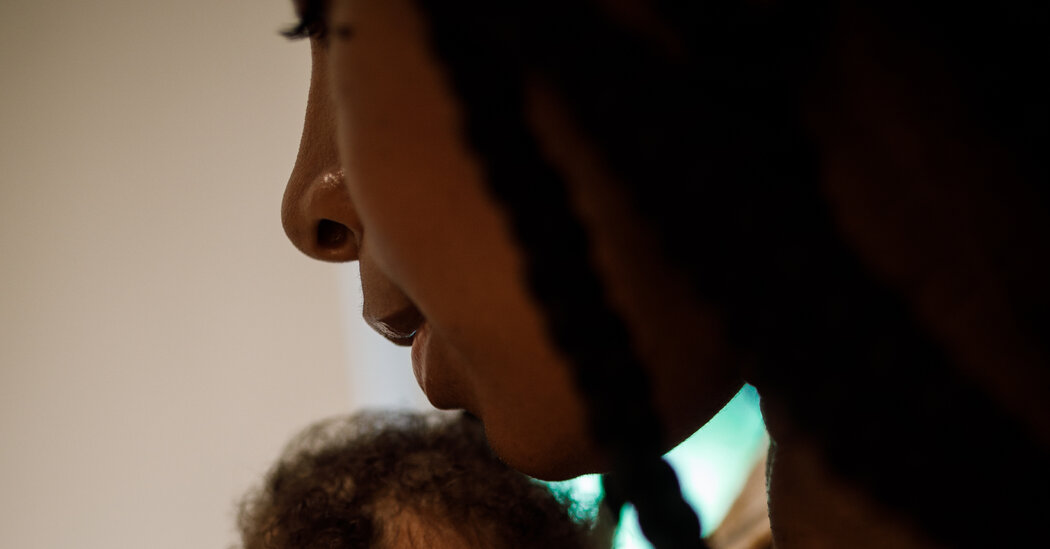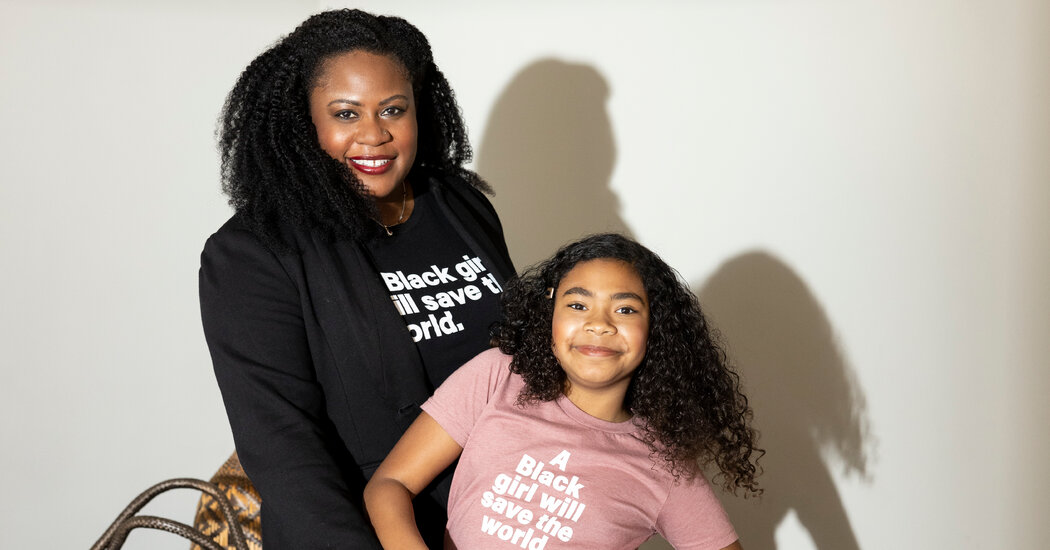Can a Telehealth Start-Up Add a Layer of Support to Pregnancy Care?
The goal of Poppy Seed Health is to connect underserved pregnant women to nurses, midwives and doulas who can offer on-demand assistance.This article is part of Upstart, a series about companies harnessing new science and technology to solve challenges in their industries.Simmone Taitt had a romanticized notion of her journey to motherhood — ups and downs, sure, but an overall beautiful experience. Then she had a miscarriage. What happened next changed the way she thought about compassionate health care, and inspired her to found a start-up, Poppy Seed Health, that aimed to support women the way she wished she had been supported.According to Ms. Taitt, during a prenatal appointment the doctor couldn’t find a heartbeat. She “looked at me and said that my body had terminated the pregnancy, which was a dagger to the heart,” she said. “‘It’s normal and happens all the time,’” Mrs. Taitt recalls the doctor saying. “‘I will see you in a few months when you start trying again’ — and she left the room.”That was the extent of the support Ms. Taitt received. “I gathered my things,” she said. “I was crying. I was devastated, and that was the most emotionally insensitive and shocking thing for me to hear.”That would not be Ms. Taitt’s only miscarriage, and the pattern that emerged would propel her to take action: She didn’t want another pregnant person to endure the highs and lows of pregnancy and not feel supported. And so she founded Poppy Seed, which offers an app that connects pregnant women to on-demand support from nurses, midwives and doulas. These providers don’t offer medical advice, as Poppy Seed’s website notes, but Ms. Taitt believes their timely counseling offers a host of other benefits.The company, based in New York City, now has about two dozen employees. The app has 400 users who collectively have logged about 50,000 hours of use, according to Ms. Taitt. Simmone Taitt, chief executive of Poppy Seed Health.Brian Fraser for The New York TimesMs. Taitt, 40, hopes Poppy Seed will be a solution to “maternal health deserts.” According to a March of Dimes report, 2.2 million women of childbearing age live in parts of the United States that have no hospitals offering obstetric care, no birth centers and no obstetric providers. Without access to these services, women have a harder time scheduling appointments for prenatal and postpartum care, and may be more likely to experience serious complications during pregnancy and childbirth. Telehealth can help fill these gaps in care.Even women who don’t live in maternity care deserts can benefit from an expert sounding board. Janell Hickman-Kirby, 36, turned to the Poppy Seed app for reassurance after a pregnancy loss and again after the birth of her baby. She said she found that many parts of pregnancy weren’t common sense, and that maternity care functions differently from other types of medicine. A first time mother might not know when to schedule appointments or what to anticipate during pregnancy, for example. Maternity care often involves more testing and screenings than an average visit to your primary care doctor. Also, doulas can have a different approach in how they communicate with clients from OB-GYNs, something Ms. Hickman-Kirby learned through the Poppy Seed app.Loved ones may offer their support during a pregnancy, Ms. Hickman-Kirby said, but that doesn’t prevent someone from engaging in “panic-inducing” doomscrolling on Google. She also noted that while most appointments with OB-GYNs are time-limited, appointments on the app are not.“It’s nice to ask questions, especially when you’re in the beginning stages of your pregnancy,” she said. “Should I be feeling this tired, or is this normal? When should I make a doctor’s appointment?”Ms. Hickman-Kirby, who is Black, said she shares the trepidation that many Black women feel around pregnancy services: According to the Centers for Disease Control and Prevention, Black women are three times more likely than white women to die during childbirth. Many of these deaths — affected by factors including underlying health conditions, lack of access to quality care and biases in the health care system — are preventable. Ms. Hickman-Kirby said Poppy Seed Health filled in some of the gaps in her maternity care.Referring to her primary OB-GYN, Ms. Hickman-Kirby said: “For my first appointment, I felt really rushed, and she had poor bedside manner and didn’t really explain a lot to me. As a first-time parent, I didn’t realize that if you had a medical emergency, you could call the doctor’s office and they connect you with an OB-GYN.”After losing her first pregnancy, Ms. Hickman-Kirby turned to Poppy Seed, which connected her to doulas who gave her various options for post-miscarriage treatment. She also learned that a woman who has a miscarriage can experience postpartum depression.In the Poppy Seed Health app, users can look up information on pre- and postnatal care.AppleAnne Schuchman, who has been a doula for 10 years, sees Poppy Seed as an extension of her practice. She takes on additional cases through the platform, which, she says, gives her the opportunity to be someone’s support when they need it most.The app functions a bit like a ride-hailing app, with users matched to an available doula or midwife in real time.“I might get that chat at 11:30 at night with someone who has had a miscarriage,” Ms. Schuchman said. “They may even have a supportive partner and a provider is giving them medical support, but an important part of being a doula is that we offer emotional support while being detached, in a healthy way.”Poppy Seed can also extend the reach of doulas like Ms. Schuchman. “I’ve gotten some Poppy chats from people preconception to people with 1-year-olds who are maybe still breastfeeding or thinking about getting pregnant again and have questions about that,” she said.In certain states, doula costs are at least partly covered by Medicaid, but they can run from hundreds of dollars to tens of thousands of dollars, and reimbursement rates can be low. Poppy Seed offers a monthly $29 per month flat rate for unlimited conversations over text messaging, or $5 for a 30-minute phone chat. Members can search in the app for information on all stages of pregnancy and early postnatal care.But the app isn’t right for everyone or every pregnancy situation. For starters, it requires access to a smartphone and a credit card. And practitioners on the app are not substitutes for doctors. Some pregnancy issues warrant an in-person visit, where procedures like an ultrasound or a pelvic exam can be conducted. And while a half-hour counseling session might cost less than an insurance co-pay, it shouldn’t replace a checkup with a medical professional.Maria Tucker Murray, an OB-GYN at Total Women’s Health in Pottstown, Pa., voiced some concerns about relying on doulas for pregnancy care. “I do support the use of doulas. They can reduce anxiety,” she said. “As far as 24/7 access, I’m not sure how comfortable I would be. They may want to intervene in medical management. Problems arise when some doulas want to intervene in medical management or overstep their boundaries with practitioners.”Though the company doesn’t release numbers regarding the income levels of their customers, Ms. Taitt said the ability to reach a broader group is a strong motivation for her.“I think the best things that we can put out in the world are based on our lived experiences, and finding solutions for those things or creating them for ourselves can be very powerful for us,” she said. “Selfishly, Poppy Seed Health is for me, but it is for the millions of people that need it that are going through very similar journeys as I went through and am still currently going through.”
Read more →

